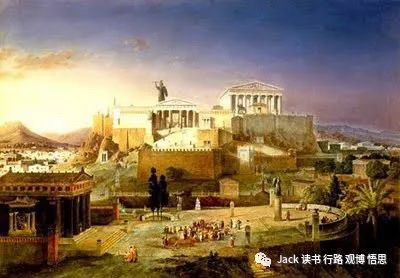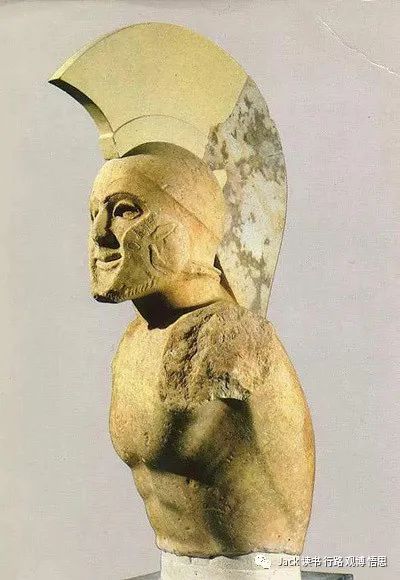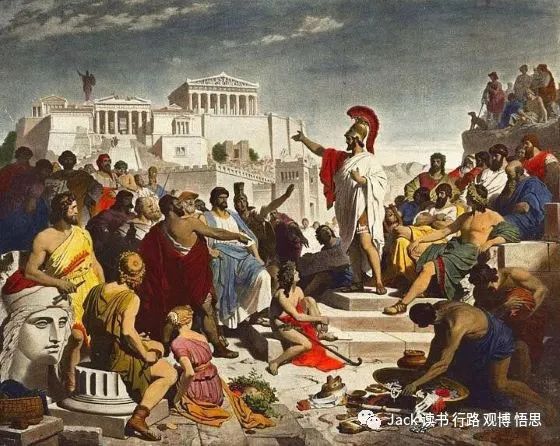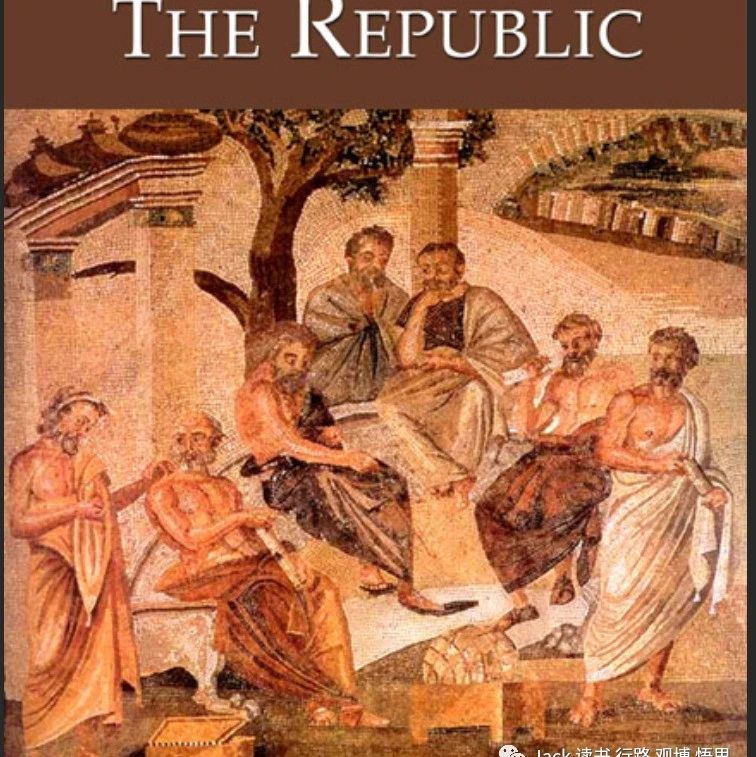The Republic 2 On the Different Ways of Ruling 《理想国》2 - 关于政体类型

(Athens in its Golden Age)
Ancient Greece was a massive political testing ground. From around 500 BCE to 330 BCE, many city-states, like Athens and Sparta, and their respective allies, experimented with different forms of governing, such as democracy, oligarchy, and tyranny. Looking at these various systems of government, from a modern-day perspective, I believe that oligarchy is the most reliable and effective system.

(Bust of a Spartan infantryman)
Oligarchy is rule by a small group of elites. This system of governance has many special advantages over democracies or tyrannies. One of the thorniest issues of a democracy, for example, is that if the majority of the voters are lacking in basic political education, they may enact laws or pass proposals that are harmful to the city state as a whole. As Herodotus puts it, “nothing is more senseless or insolent than a worthless crowd”. In an oligarchy, the risk of this problem is diminished. In an ideal state, different oligarchs and candidates could restrict each other and eventually have a discussion to make a decision that would benefit everyone. Another advantage in an oligarchy is that power in most cases is not too centralized, lowering the risk of a tyrant coming to power.

(Pericles, the leader of Athens, giving a speech at a popular assembly)
Different types of government employ different kinds of justice. For a monarchy to be just and efficient, the monarch needs to be wise and competent. In a democracy, justice is mainly in the hands of every single individual that participates. The benefits are that equality could be easily achieved, and society as a whole could thrive, as in the case of America in the 19th and 20th century. For an oligarchy, justice lies chiefly with the elite’s preferences. There would be stability and fairness in the state, as power is not controlled by one individual, and every decision has to be passed by the majority of well-educated elites.
Overall, oligarchy seems to be the most reliable system. However, there is no perfect way of ruling. For an oligarchy, it would be almost certain that the elite would be made up of the rich and powerful, and they could be vying for personal interests, and passing laws that only benefit them. What is more, in an oligarchy, different factions and parties could be pitted against each other, significantly lowering efficiency and making real advancement in policies difficult. In any case, we all need to keep contemplating the various pros and cons of political systems to ensure that we are always on the right track.
PICTURES CITED
https://www.timetoast.com/timelines/persia-and-greece-timeline
https://itsallgreek.co.uk/replica-bronze-bust-of-Leonidas-BB-15
https://allthatsinteresting.com/ancient-history-great-speeches/2

(雅典的黄金时代)
古希腊是一个大规模的政治试验场。从公元前500年到公元前330年左右,许多城邦,如雅典和斯巴达以及它们各自的盟友,都尝试过不同的治理形式,如民主、寡头、君主制等。从现代人的角度看这些不同的政体,我认为寡头制是最可靠、最有效的政治体制。

(斯巴达重装步兵像)
寡头政治的意思是一小组精英的统治。这种治理制度与民主政体或君主(专制)政体相比,有许多特殊的优势。例如,民主制最棘手的一个问题是,如果大多数选民缺乏基本的政治教育,他们可能会制定对整个城邦有害的法律或提案。正如希罗多德所说,"没有什么比一群乌合之众更无知或更无礼的了"。在寡头政治中,这个问题的风险就会降低许多。在理想的状态下,不同的寡头和候选人可以互相限制,最终进行讨论,做出一个对大家都有利的决定。寡头制的另一个优点是,在大多数情况下,权力不会过于集中,降低了暴君上台的风险。

(雅典“第一公民”伯里克利在公民大会的演讲场景)
不同类型的政体对于“正义”的定义不同。在君主专制制度下,“正义”主要掌握在统治者一人手里。要想做到公正高效,统治者就需要有智慧和能力,平衡各方利益关系来保全整个城邦的利益。在民主制度下,“正义”主要掌握在每一个参与的个体手中。这样做的好处是,可以很容易地实现平等,整个社会欣欣向荣、充满活力,就像19、20世纪的美国一样。对于寡头制来说,“正义”主要掌握在精英阶层的手中,为精英阶层的喜好所服务。国家会有稳定性和公平性,因为权力不是由一个人控制,每一个决定都要由大多数受过良好教育的精英通过。
总的来说,寡头政治似乎是最可靠的制度。然而,世界上没有完美的统治方式。对于寡头制来说,几乎可以肯定的是,精英们会由有钱有势的人组成,他们可能会争夺个人利益,通过只对他们有利的法律。更何况,在寡头政治中,不同派系、不同党派之间可能相互对立、倾轧,大大降低了决策效率,使政策难以真正推进。无论如何,我们都需要不断思考政治制度的各种利弊,确保我们始终走在正确的轨道上。
- 本文标签: 原创
- 本文链接: http://www.jack-utopia.cn//article/446
- 版权声明: 本文由Jack原创发布,转载请遵循《署名-非商业性使用-相同方式共享 4.0 国际 (CC BY-NC-SA 4.0)》许可协议授权










